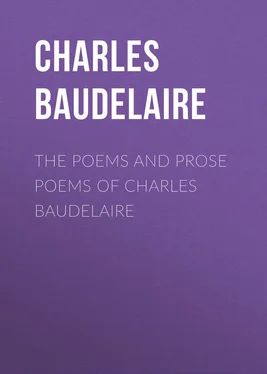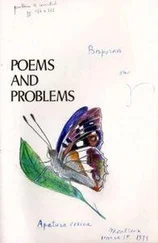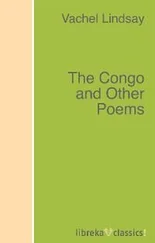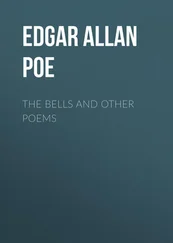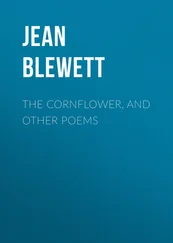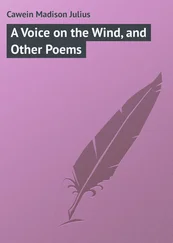Charles Baudelaire - The Poems and Prose Poems of Charles Baudelaire
Здесь есть возможность читать онлайн «Charles Baudelaire - The Poems and Prose Poems of Charles Baudelaire» — ознакомительный отрывок электронной книги совершенно бесплатно, а после прочтения отрывка купить полную версию. В некоторых случаях можно слушать аудио, скачать через торрент в формате fb2 и присутствует краткое содержание. Жанр: foreign_antique, foreign_prose, foreign_poetry, на английском языке. Описание произведения, (предисловие) а так же отзывы посетителей доступны на портале библиотеки ЛибКат.
- Название:The Poems and Prose Poems of Charles Baudelaire
- Автор:
- Жанр:
- Год:неизвестен
- ISBN:нет данных
- Рейтинг книги:4 / 5. Голосов: 1
-
Избранное:Добавить в избранное
- Отзывы:
-
Ваша оценка:
- 80
- 1
- 2
- 3
- 4
- 5
The Poems and Prose Poems of Charles Baudelaire: краткое содержание, описание и аннотация
Предлагаем к чтению аннотацию, описание, краткое содержание или предисловие (зависит от того, что написал сам автор книги «The Poems and Prose Poems of Charles Baudelaire»). Если вы не нашли необходимую информацию о книге — напишите в комментариях, мы постараемся отыскать её.
The Poems and Prose Poems of Charles Baudelaire — читать онлайн ознакомительный отрывок
Ниже представлен текст книги, разбитый по страницам. Система сохранения места последней прочитанной страницы, позволяет с удобством читать онлайн бесплатно книгу «The Poems and Prose Poems of Charles Baudelaire», без необходимости каждый раз заново искать на чём Вы остановились. Поставьте закладку, и сможете в любой момент перейти на страницу, на которой закончили чтение.
Интервал:
Закладка:
In preferring the Baudelaire translations of Poe to the original – and they give the impression of being original works – Stedman agreed with Asselineau that the French is more concise than the English. The prose of Poe and Baudelaire is clear, sober, rhythmic; Baudelaire's is more lapidary, finer in contour, richer coloured, more supple, though without the "honey and tiger's blood" of Barbey d'Aurevilly. Baudelaire's soul was patiently built up as a fabulous bird might build its nest – bits of straw, the sobbing of women, clay, cascades of black stars, rags, leaves, rotten wood, corroding dreams, a spray of roses, a sparkle of pebble, a gleam of blue sky, arabesques of incense and verdigris, despairing hearts and music and the abomination of desolation, for its ground-tones. But this soul-nest is also a cemetery of the seven sorrows. He loves the clouds … les nuages … là bas… It was là bas with him even in the tortures of his wretched love-life. Corruption and death were ever floating in his consciousness. He was like Flaubert, who saw everywhere the hidden skeleton. Félicien Hops has best interpreted Baudelaire; the etcher and poet were closely knit spirits. Rodin, too, is a Baudelarian. If there could be such an anomaly as a native wood-note wildly evil, it would be the lyric and astringent voice of this poet. His sensibility was both catholic and morbid, though he could be frigid in the face of the most disconcerting misfortunes. He was a man for whom the invisible word existed; if Gautier was pagan, Baudelaire was a strayed spirit from mediæval days. The spirit rules, and, as Paul Bourget said, "he saw God." A Manichean in his worship of evil, he nevertheless abased his soul: "Oh! Lord God! Give me the force and courage to contemplate my heart and my body without disgust," he prays: but as some one remarked to Rochefoucauld, "Where you end, Christianity begins."
Baudelaire built his ivory tower on the borders of a poetic Maremma, which every miasma of the spirit pervaded, every marsh-light and glow-worm inhabited. Like Wagner, Baudelaire painted in his sultry music the profundities of abysms, the vastness of space. He painted, too, the great nocturnal silences of the soul.
Pacem summum tenent! He never reached peace on the heights. Let us admit that souls of his kind are encased in sick frames; their steel is too shrewd for the scabbard; yet the enigma for us is none the less unfathomable. Existence for such natures is a sort of muffled delirium. To affiliate him with Poe, De Quincey, Hoffman, James Thomson, Coleridge, and the rest of the sombre choir does not explain him; he is, perhaps, nearer Donne and Villon than any of the others – strains of the metaphysical and sinister and supersubtle are to be discovered in him. The disharmony of brain and body, the spiritual bilocation, are only too easy to diagnose; but the remedy? Hypocrite lecteur – mon semblable – mon frère! When the subtlety, force, grandeur, of his poetic production be considered, together with its disquieting, nervous, vibrating qualities, it is not surprising that Victor Hugo wrote to the poet: "You invest the heaven of art with we know not what deadly rays; you create a new shudder." Hugo might have said that he turned Art into an Inferno. Baudelaire is the evil archangel of poetry. In his heaven of fire, glass and ebony he is the blazing Lucifer. "A glorious devil, large in heart and brain, that did love beauty only…" once sang Tennyson, though not of the Frenchman.
As long ago as 1869, and in our "barbarous gas-lit country," as Baudelaire named the land of Poe, an unsigned review appeared in which this poet was described as "unique and as interesting as Hamlet. He is that rare and unknown being, a genuine poet – a poet in the midst of things that have disordered his spirit – a poet excessively developed in his taste for and by beauty … very responsive to the ideal, very greedy of sensation." A better description of Baudelaire does not exist The Hamlet-motive, particularly, is one that sounded throughout the disordered symphony of the poet's life.
He was, later, revealed – also reviled – to American readers by Henry James, who completely missed his significance. This was in 1878, when appeared the first edition of French Poets and Novelists. Previous to that there had been some desultory discussion, a few essays in the magazines, and in 1875 a sympathetic paper by Professor James Albert Harrison of the University of Virginia. He denounced the Frenchman for his reprehensible taste, though he did not mention his beautiful verse nor his originality in the matter of criticism. Baudelaire, in his eyes, was not only immoral, but he had, with the approbation of Sainte-Beuve, introduced Poe as a great man to the French nation. (See Baudelaire's letter to Sainte-Beuve in the newly published Letters, 1841-1866.) Perhaps "Mr. Dick Minim" and his projected Academy of Criticism might make clear these devious problems.
The Etudes Critiques of Edmond Schérer were collected in 1863. In them we find this unhappy, uncritical judgment: "Baudelaire, lui, n'a rien, ni le cœur, ni l'esprit, ni l'idée, ni le mot, ni la raison, ni la fantaisie, ni la verve, ni même la facture … son unique titre c'est d'avoir contribué à créer l'esthétique de la débauche." It is not our intention to dilate upon the injustice of this criticism. It is Baudelaire the critic of æsthetics in whom we are interested. Yet I cannot forbear saying that if all the negations of Schérer had been transformed into affirmations, only justice would have been accorded Baudelaire, who was not alone a poet, the most original of his century, but also a critic of the first rank, one who welcomed Richard Wagner when Paris hooted him and his fellow composer, Hector Berlioz, played the rôle of the envious; one who fought for Edouard Manet, Leconte de Lisle, Gustave Flaubert, Eugène Delacroix; fought with pen for the modern etchers, illustrators, Meryon, Daumier, Félicien Rops, Gavarni, and Constantin Guys. He literally identified himself with De Quincey and Poe, translating them so wonderfully well that some unpatriotic persons like the French better than the originals. So much was Baudelaire absorbed in Poe that a writer of his times asserted that the translator would meet the same fate as the American poet. A singular, vigorous spirit is Baudelaire's, whose poetry with its "icy ecstasy" is profound and harmonious, whose criticism is penetrated by a catholic quality, who anticipated modern critics in his abhorrence of schools and environments, preferring to isolate the man and uniquely study him. He would have subscribed to Swinburne's generous pronouncement: "I have never been able to see what should attract man to the profession of criticism but the noble pleasure of praising." The Frenchman has said that it would be impossible for a critic to become a poet; and it is impossible for a poet not to contain a critic.
Théophile Gautier's study prefixed to the definitive edition of Les Fleurs du Mal is not only the most sympathetic exposition of Baudelaire as man and genius, but it is also the high-water mark of Gautier's gifts as a critical essayist. We learn therein how the young Charles, an incorrigible dandy, came to visit Hôtel Pimodan about 1844. In this Hôtel Pimodan a dilettante, Ferdinand Boissard, held high revel. His fantastically decorated apartments were frequented by the painters, poets, sculptors, romancers, of the day – that is, carefully selected ones such as Liszt, George Sand, Mérimée, and others whose verve or genius gave them the privilege of saying Open Sesame! to this cave of forty Supermen. Balzac has in his Peau de Chagrin pictured the same sort of scenes which were supposed to occur weekly at the Pimodan. Gautier eloquently describes the meeting of these kindred artistic souls, where the beautiful Jewess, Maryx, who had posed for Ary Scheffer's Mignon and for Paul Delaroche's La Gloire, met the superb Madame Sabatier, the only woman that Baudelaire loved, and the original of that extraordinary group of Clésinger's – the sculptor and son-in-law of George Sand – la Femme au Serpent, a Salammbô à la mode in marble. Hasheesh was eaten, so Gautier writes, by Boissard and Baudelaire. As for the creator of Mademoiselle Maupin, he was too robust for such nonsense. He had to work for his living at journalism, and he died in harness, an irreproachable father, while the unhappy Baudelaire, the inheritor of an intense, unstable temperament, soon devoured his patrimony of 75,000 francs, and for the remaining years of his life was between the devil of his dusky Jenny Duval and the deep sea of hopeless debt.
Читать дальшеИнтервал:
Закладка:
Похожие книги на «The Poems and Prose Poems of Charles Baudelaire»
Представляем Вашему вниманию похожие книги на «The Poems and Prose Poems of Charles Baudelaire» списком для выбора. Мы отобрали схожую по названию и смыслу литературу в надежде предоставить читателям больше вариантов отыскать новые, интересные, ещё непрочитанные произведения.
Обсуждение, отзывы о книге «The Poems and Prose Poems of Charles Baudelaire» и просто собственные мнения читателей. Оставьте ваши комментарии, напишите, что Вы думаете о произведении, его смысле или главных героях. Укажите что конкретно понравилось, а что нет, и почему Вы так считаете.
